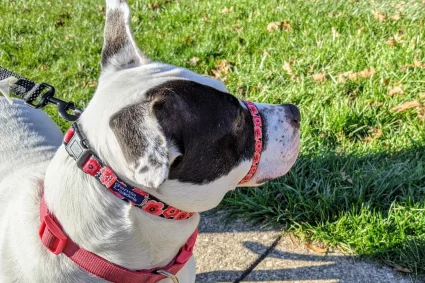
Choosing a rescue dog is not only a noble act but also a rewarding experience. As an animal advocate, adopting a rescue dog gives them a new lease on life and a chance to live in a loving home. However, adoption is a significant decision that requires proper consideration and planning. Rescue dogs come in different breeds, ages, and temperaments, making it vital to choose the right pet for your family. In this article, we will explore the key factors to consider when choosing a rescue dog, including shelter selection, age, energy levels, lifestyle compatibility, and finding the perfect match. Read on to discover how you can find your perfect furry companion.
Benefits of Adopting a Rescue Dog
Adopting a rescue dog is a wonderful way to add a loyal companion to your family while also providing shelter animals with a much-needed home. Not only are you giving these animals a second chance at a happy life, but you also get to enjoy many benefits of adopting a rescue dog.
One of the most significant advantages of adopting a rescue dog is that it can save you a considerable amount of money. Adoption fees are typically much less costly than purchasing a pet from a pet store or breeder, meaning that you can save a considerable amount of money while still enriching your life with the love and companionship of a furry friend.
Moreover, rescued dogs typically go through a thorough medical examination upon arrival at the shelter. They are vaccinated, microchipped and spayed or neutered, ensuring that they are in good health and have been taken care of by shelter staff.
Another advantage of adopting a rescue dog is that they have often already received some level of obedience training from shelter staff. This means that they may already know basic commands and have some degree of socialization with other people and animals, making the transition to their new home smoother for both the dog and the adoptive family.
Most importantly, adopting a rescue dog provides the opportunity to create a special bond with a loyal companion. These dogs often show their gratitude by forming strong and lasting relationships with their new families, providing endless love and affection. And by adopting a rescue dog, you also make a significant difference in the lives of these animals and help to reduce the amount of overcrowding in shelters.
1. Picking The Right Shelter
Adopting a shelter dog can be a rewarding experience for both the dog and the adoptive family. However, the first step in the adoption process is picking the right shelter to work with. Not all shelters are created equal, and it is essential to find a reputable one that will provide the best possible environment and care for the dogs.
It is important to understand the difference between shelters and rescues. Shelters typically have a wider variety of animals and are often government-funded. Rescues, on the other hand, usually focus on a specific type of animal and are typically run by non-profit organizations. The best choice depends on the adoptive family’s preference and the specific needs of the family and dog.
When looking for a shelter, there are a few key factors to consider. First and foremost, the shelter should be a reputable one, working with animal welfare organizations such as the Humane Society. It is also advisable to select a shelter with a good return policy, in case the dog doesn’t adjust well to its new home or has health issues that were not apparent during the initial visit.
When preparing for a shelter visit, it is essential to assess the family’s needs and lifestyle. For example, if the family is active and enjoys outdoor activities, a high-energy dog may be a good match. However, if the family is more laid-back, a calmer, older dog may be a better fit. Physical abilities should also be considered, as larger dogs may not be suitable for families with small children or those who have mobility issues.
Another critical aspect is to focus on desired qualities and interactions with the dog. It is essential to spend time with potential shelter dogs to gauge their temperament and personality traits. For example, a family may prefer a dog that is loyal, friendly, and easy to train, and is good with children or other animals in the household.
2. Picking the Right Age
When it comes to selecting the perfect rescue dog for your family, age is a crucial factor to consider. Depending on your lifestyle, preferences, and family dynamic, different age ranges of dogs can be more suitable than others.
Puppies
Adopting a rescue puppy can be a wonderful experience that not only gives a loving furry friend a second chance at life, but also brings joy and companionship to the adoptive family. However, it’s important to be aware of the challenges that come with raising a puppy and to ensure that you choose the right one for your family.
One of the biggest challenges of adopting a rescue puppy is potty training. Puppies need to go potty frequently and may not yet know how to do so outside. This can be a time-consuming task that requires patience and consistency. Similarly, obedience training is a must for any puppy to learn basic commands and appropriate behavior. This also takes time and dedication from the pet owner as well.
It’s important to note that puppies require a lot of attention and care. They are energetic and playful, but can also be demanding. It’s crucial that potential adopters are prepared to dedicate their time and effort to ensure the puppy’s well-being.
Socialization is another essential aspect to consider when adopting a rescue puppy. Proper socialization helps the puppy build confidence, understand how to interact with other pets and people, and reduces the risk of developing behavioral problems later in life. It’s important to expose puppies to different people, places, and experiences to create a well-rounded and friendly furry friend.
When choosing a rescue puppy for your family, it’s important to consider their personality traits and energy levels. Some puppies may have been surrendered due to behavioral issues, so it’s important to ask the shelter staff about their history and previous living situation. Additionally, if you have other pets at home, it’s important to choose a puppy that can easily coexist with them.
Overall, while adopting a rescue puppy can be challenging, the benefits of providing a loving home for a furry friend are immeasurable. With patience, dedication, and proper training and socialization, you can ensure that your rescue puppy grows up to be a loyal and well-behaved companion that brings joy and happiness to your family for years to come.
Adults
When it comes to adopting a dog from a shelter, adult dogs are a great option to consider. These dogs have already passed their puppy phase and are more established in their personalities and energy levels. When selecting an adult dog from a shelter, it’s important to consider their personality traits, energy level, and any potential behavioral issues.
Many adult dogs at shelters have been surrendered due to no fault of their own, and simply need a new home with a loving family. However, some may have behavioral issues that need to be addressed. It’s important to speak with the shelter staff about a dog’s history and any potential challenges that may arise.
One of the benefits of adopting an adult dog is that they generally require less attention and training than puppies. They are more independent and have already established their habits and behaviors. This can be helpful for busy families or individuals who may not have as much time to devote to training and socializing a puppy.
When selecting an adult dog from a shelter, it’s important to visit with them multiple times to ensure that they are the right fit for your family. Spend time interacting with the dog, taking them for walks, and observing their behavior. This will help you get a better sense of their personality and energy level.
Adult dogs come in a variety of breeds, sizes, and personalities, so it’s important to choose one that complements your lifestyle. If you’re an active person, consider a high-energy breed. If you live in an apartment or have limited space, a smaller breed may be more suitable. Additionally, if you have other pets at home, it’s important to choose an adult dog that can easily coexist with them.
Senior Rescue Dogs
When considering adopting a rescue dog, many people immediately think of puppies or younger dogs. However, senior rescue dogs can make the perfect addition to your family. Not only are they often overlooked in shelters, but they also make incredibly loyal and affectionate companions.
One of the main benefits of adopting a senior dog is their often calmer and more laid-back demeanor. They are often past the energetic stage and are happy to simply curl up on the couch with their new family. Additionally, older dogs have already gone through their chewing and destructive phases, meaning that they are less likely to cause damage to your home and belongings.
It’s important to note that senior dogs may require more frequent veterinary visits, medications, and procedures due to age-related health issues. However, with proper care, senior rescue dogs can lead happy and healthy lives. To manage their special health needs, it’s crucial to establish a strong relationship with a reputable veterinarian who understands the unique needs of older dogs.
When bringing a senior rescue dog into your home, it’s essential to make them as comfortable as possible. Providing a soft, supportive bed and eliminating obstacles from their path can make a big difference in their overall well-being. Additionally, older dogs may benefit from a diet that is specifically tailored to their age and health needs.
To keep senior rescue dogs active and engaged, it’s important to continue to train them with basic commands and find activities that suit their mobility levels. This can give them a sense of purpose and prevent them from becoming bored or anxious.
3. Choose the Ideal Energy Level
When choosing the perfect rescue dog for your family, one of the most important factors to consider is energy level. It’s crucial to find a dog whose energy level matches your lifestyle and exercise schedule, to ensure that both you and your furry friend are happy and healthy.
First, take a look at your own lifestyle and living arrangements. If you have a smaller home or live in an apartment, a high-energy dog may not be the best fit. On the other hand, if you have a large backyard or live near a park, a more active dog may be a good match. Additionally, consider your schedule and how much time you can commit to exercising your dog. If you work long hours and don’t have the time for daily walks or runs, a lower energy dog may be a better choice.
When visiting the shelter, be sure to ask the staff about the temperament and energy level of the dogs you are considering. Let them know your preferences and lifestyle, and they can help guide you towards a dog that is a good match. Keep in mind that breed alone cannot determine a dog’s energy level, as factors such as age and temperament also play a role.
It’s also important to note that a dog’s energy level may change over time, depending on their living situation and exercise routine. A dog that is initially high-energy may become more relaxed as they adjust to their new home and routine, while a low-energy dog may become more active with regular exercise.
4. Choosing a Rescue Dog that Suits Your Lifestyle
When it comes to adopting a rescue dog, it’s important to think about which one will be the best fit for your lifestyle. After all, bringing home a furry companion is a long-term commitment that requires time, patience, and resources. So, what factors should you consider when choosing the right dog for your circumstances?
First and foremost, take a close look at your own lifestyle. Do you have a busy work schedule or long hours away from home? If so, a high-energy dog may not be the best fit for you. However, if you have a more flexible schedule or work from home, a more active dog might be a great match.
When choosing a dog, it is important to take into account your living situation, such as whether you reside in a small apartment or a house with a large yard, as this can impact the most suitable size and energy level of the dog.
Another factor to consider is your activity level. If you’re an avid jogger or hiker, a dog that can keep up with you on your outdoor adventures might be a great choice. On the other hand, if you prefer more relaxed activities like watching movies or reading, a calmer, lower-energy dog may be better for you.
When visiting a rescue organization or shelter, it’s important to pay attention to the age, energy level, and personality of the dogs you’re considering. While breed may play a role in these factors, it’s not the only determining factor. Ask the shelter staff for their input and advice when assessing potential dog candidates. You may even consider taking a breed-specific rescue quiz or speaking with breed-specific rescue groups to narrow down your search and find a dog that’s a good match for you.
Finally, ask yourself why you want a dog and whether you’re ready to make a long-term commitment to care for them. Proper training, exercise, and medical care can require significant time and resources. However, the love and companionship you’ll receive in return are priceless.
5. The Right Fit
When it comes to pet ownership, it’s no secret that finding the perfect rescue dog for your family can be a challenge. However, by taking the time to consider every aspect of your daily life, you can find the ideal pet that will bring you years of happiness and companionship.
When looking for a dog, it’s essential to consider your living situation and whether the dog will need to interact with other pets or children. The goal is to find a dog that will integrate smoothly into your family dynamic, promoting happiness and safety for everyone involved.
Size is also an important consideration when choosing a dog. If you live in a small apartment or have limited space, a smaller dog may be a more practical choice. Larger dogs may require more space to run and play, so be sure to factor this into your decision-making process.
Exercise and medical requirements are other significant factors to consider when choosing the right pet for your family. Some breeds require more exercise than others, so it’s essential to find a dog that will match your family’s activity level. You should also consider any special medical needs that may require extra vet care and attention.
Compatibility is crucial when searching for the ideal pet. While breed-specific behaviors can offer guidance, mixed breed dogs may also have unique personality traits that should be considered. Doing research on certain breeds and speaking with shelter employees or rescue organizations can help you find a dog that will be the perfect fit for your family’s personality and lifestyle.
The Importance Of Training Your Rescue Dog!
Training your rescue dog is an important part of the process when welcoming a new family member into your home. Training establishes a strong bond between you and your pet, as well as teaching them the rules of the house and how to behave in different situations. Dogs need structure and consistency, so training will help ensure that your pup understands how to interact with people, other animals, and their environment.
Teaching your pup basic commands is the foundation of any successful training program. Start with simple commands like “sit,” “stay,” and “come,” and use positive reinforcement to encourage good behavior. Make sure you reward them with treats or praise when they obey a command. You can also look for pet training online courses, which will help you as an owner to help your new dog.
Engage your dog in playtime. A great way to bond with your rescue dog is to engage in playtime. Playing with your pup can help build trust and a strong relationship, while also teaching them how to socialize with other dogs.
Finally, make sure that you provide plenty of mental stimulation for your pup. Games like hide and seek or puzzles can exercise their brain and help keep them from getting bored and destructive. With patience, consistency, and love, you can train your rescue dog successfully and give them the happy home they deserve.
Conclusion
In conclusion, adopting a rescue dog can be an incredibly rewarding experience for you and your family. It’s important to remember that no two dogs or families are alike, so it’s essential to take the time to research and understand the needs of both you and your potential pup before making any decisions. Remember to consider temperament, size, breed, energy levels, training requirements, and more when making your choice. Working with a reputable rescue organization can aid in the process of selecting a suitable dog for your family. Through careful consideration and patience, it is possible to find an ideal rescue dog that will integrate well into your family.














































